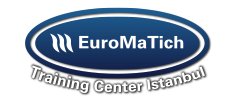Overview:
Introduction:
A properly designed and effective performance management process will require a range of techniques including agreeing objectives, reviewing and monitoring performance, giving feedback, coaching, training and development and reward, and of course, appraisal itself. The course will demonstrate how these techniques link to the role of HR and the role of the line-manager.
Course Objectives:
At the end of this course the participants will be able to:
- Understand performance in a multi-cultural environment.
- Describe the purposes of performance management, from an organizational point of view.
- Describe the purposes of performance management from an individual’s point of view.
- Demonstrate the skills involved in each of the four steps of performance management.
- Describe best practices in assisting with employee work-performance problems.
- Make the links between performance management and corporate strategy.
Targeted Audience:
- All Planning Personnel Involved in Human Resources Management
- All Managers and Leaders Involved in Human Resources Management
- Process and Quality Improvement personnel
- Personnel with Real Leadership Potential
- Project Management Office (PMO) Managers
- All HR personnel with an interest in Employees Performance and Appraisals
Course Outlines:
Unit 1: Introduction to Performance Management:
- The context for performance management
- The case for performance management
- The principles of effective performance management
- What makes people try hard?
- The role of HR within performance management
- The role of Managers, Supervisors and Team Leaders within performance management
- The use of competencies in Performance Management
- Addressing the performance gap
Unit 2: Starting Well: Objectives and Feedback:
- Introducing the principles to your team
- The importance of agreeing on objectives
- Quantitative and Qualitative objectives
- SMARTMaC Objectives
- Providing feedback
- Positive reinforcement
- Developmental feedback
- Distinctions Feedback and Criticism
Unit 3: Relationships and Coaching:
- The Ask/Tell Matrix
- Empowerment in practice
- The eight steps of an effective coaching session
- Handling disciplinary issues
- Dealing with complaints
- Handling absenteeism and sickness problems
- The key ways of improving attendance
Unit 4: Finishing Well: Making Appraisal a Motivating Experience:
- The purpose of Performance Appraisal
- Monthly/Quarterly/Annual Reviews
- The practical issues
- Agreeing on the evaluation
- Forced Ranking and Expected Distribution
- The links to reward
- Merit pay
- Personal Development
Unit 5: Advanced Performance Management:
- 360-degree feedback
- Emotional Intelligence
- Integrated strategic performance management
- Internal and external reporting frameworks,
- Balanced scorecard techniques,
- Links into a strategic advantage
- Course summary
- Personal Development Planning


